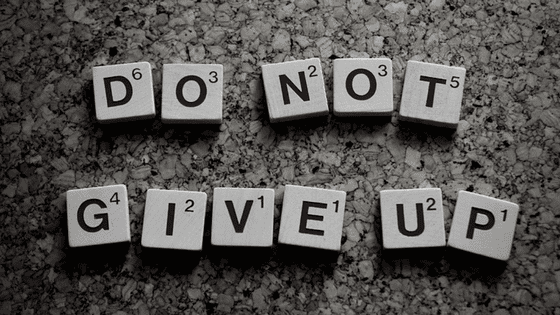Work. Ugh. Even working for yourself or in a job you’re really passionate about it can sometimes be hard to stay motivated.

Employment or running a business can sometimes feel like a continuous cycle of: Wake up – force self to eat breakfast even though mouth feels like it’s made of sand – drive to work – work – deal with own crap – deal with everyone else’s crap – tear self away from work even though there’s loads more to do and go home – eat food – pass out – repeat.
You love what you do but when it all gets too much our natural reaction is to want to do absolutely anything else and before you know it you’re demotivated.
So what are you going to do about this? Follow these tips is what you’re going to do!
We’re not here to give out meaningless phrases like “stay positive” because if it was that simple you wouldn’t be reading this. Also, it’s super annoying when people say that or “cheer up, things’ll get better”. We’re not going to tell you that you’re “a strong, successful, independent woman who doesn’t need to smoke” because we all know how that worked out for Chandler Bing.
Get away from it all
Listen to your body! You’re demotivated because it needs a change. Your brain is telling you to do something else so go do it! That might not be practical during work hours but force yourself to leave on time and go do something fun or relaxing (ideally both). We’ve already established that there’s always more to do so what is an extra hour of leisure time spent at work really going to achieve when you’re working at half-speed?
Catch a movie, read a book, hit the beach, get fit, whatever. Do something enjoyable. A well-rested body and mind will be better equipped for a day at work and you’ll be able to accomplish more which will naturally motivate you.
Tidy up
Random tip but stick with us. The old idiom that a tidy desk equals a tidy mind rings true for some people but we’re not saying a messy desk is why you have a lack of motivation. In fact, some studies suggest that a little disorder is good for creativity.
This suggestion is all about achievement. Often we feel unmotivated when we’re not achieving. That could be something as simple as not ticking enough things off the to-do list or having a demanding project with no end in sight. Something as simple as getting your desk organised or polishing the kitchen taps if you work from home can be a great motivator.
It’s a simple task that requires little brainpower (so it gives us a change to power down and recharge) and you get results that you can actually see. It’s a small achievement but it tricks your brain into releasing endorphins and dopamine which will help pump you up for the next task. (Going for a run can also do the same thing so if you hate cleaning get exercising!)
90/20 the hell out of yourself
You’re probably working way too hard/much and this is affecting your productivity which then affects your motivation. Sleep studies have discovered something called the ultradian rhythm which is essentially the cycle of activity our brains go through in REM sleep. Scientists have found this 90 minute cycle of brain activity is relevant to our conscious selves too. The finding was that our brains function best in 90 minutes bursts.
The take away from this is we should all be working for 90 minutes and then resting for 20 minutes to be at our most productive. Productivity and motivation go hand in hand. If you feel like you’re pushing an elephant up the stairs (see what we did there?) and hardly getting anywhere you’ll be less motivated.
Reward yourself!
When you set yourself tasks assign rewards to them. Report finished by 5pm? Steak for dinner. Presentation complete? Ice cream in the park. Database updated? Movie night.
It doesn’t have to be big but it has to be meaningful. A bite of chocolate for 3 hours of hard graft isn’t much to get excited about but treating yourself to a new book or putting $10 towards an expensive piece of clothing you really want but can’t justify buying for no reason? That’s something to aim for.
Set yourself achievable tasks and learn to better recognise when you need a break (and actually take it). Practical tips aside, those two things will help get you back to your best, most motivated self.






















